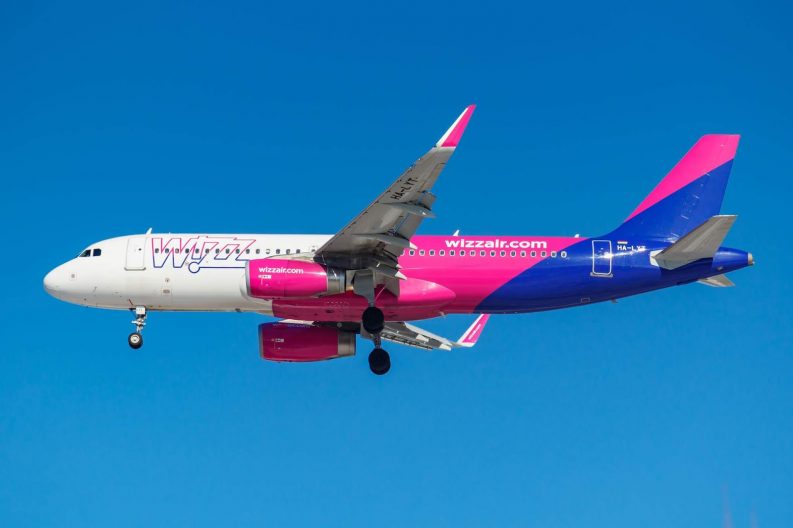Key points:
- Wizz Air reported a trading update Wednesday
- The company reported an operating loss but said demand was strong
- Wizz Air shares fell 5%
Wizz Air (LON: WIZZ) shares fell over 5% Wednesday morning after the airline reported a trading update for the six months ending September 30.
The carrier told investors it recorded an operating loss for the period of €63.8 million but stated that revenue and capacity growth was strong. Wizz Air’s revenue came in at €2.2 billion, up 149.2% year-over-year, while passengers carried was 26.5 million, up 112%.
The company's shares, like all airlines, took a significant hit during the pandemic. The industry’s recovery has been slower than expected after further macro headwinds such as soaring inflation, labour shortages, and fuel costs further impacted the sector. As a result, Wizz Air shares are down over 61% in 2022.

Also Read: Best Airline Stocks to Buy
Wizz Air Chief Executive József Váradi said in the company’s press release that “EBITDA for the second quarter turned strongly positive to €374 million, bringing the first half to total EBITDA of €218 million,” despite supply chain disruptions and high commodity prices headwinds.
“Wizz Air delivered strong results in the second quarter of the fiscal year, after a difficult first quarter operationally. Revenue in the first half of the fiscal year was materially higher than it was in the same period last year, and up 31 per cent versus the same period pre-COVID-19. For the second quarter, revenue was up 41 per cent versus the same period pre-COVID-19,” added Váradi.
“Revenue per available seat kilometre improved from -10 per cent during the first quarter to +11 per cent during the second quarter, ahead of guidance, all measured versus the pre-COVID-19 quarters. This was driven by load factors recovering and improved yields, no longer held back by COVID-19 or the war in Ukraine. Wizz Air's focus continues to be the combined approach of delivering growth while pricing for cost inflation.”
Looking ahead, the company said it is gearing up to operate at around 35% higher capacity in the second half compared to 2019, while average fares are above 2019 levels. Wizz said the macroeconomic backdrop remains challenging, and uncertainty for consumers has heightened, but they have put in place measures to mitigate the impact on our costs.




